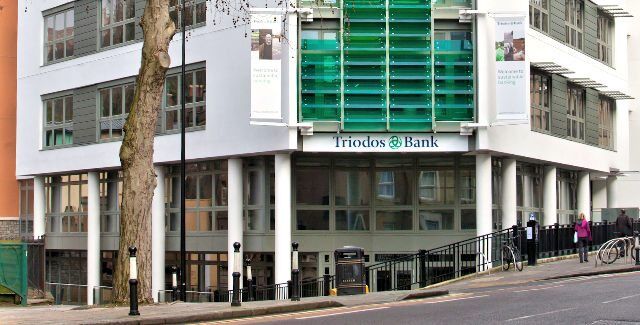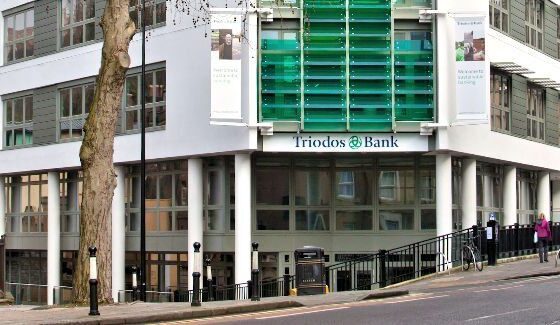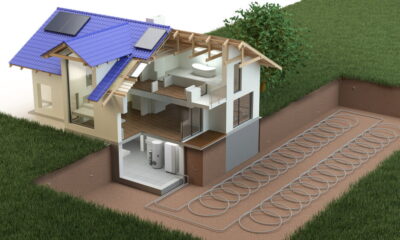

Invest
Triodos Bank Enforce Measures To Protect Most Vulnerable From Fuel Poverty
Triodos Bank are improving living standards for tenants by providing social housing associations with access to innovative finance
Triodos Bank has created a dedicated £15 million lending pot for social housing providers to make energy efficient improvements to current housing stock to alleviate fuel poverty and develop green spaces, in an initiative to raise living standards for the UK’s most vulnerable residents.
People living in social housing can be vulnerable and at risk of falling into fuel poverty as older properties can potentially be energy inefficient. Latest figures from GOV.UK report 2.38 million households in England were living in fuel poverty – an increase from the previous year to 10.6% of all households.
Housing associations face pressures to increase housing capacity which often comes at the expense of making energy saving measures in current properties and developing green spaces that are so vital for well-being. The problem for small-medium housing providers is that there is often not enough financial reserves to make the vital improvements to homes – for both future and current tenants. Even if housing providers show good financial track records, lenders have traditionally only been able to finance loans by taking security – often the housing stock that providers currently own.
Triodos Bank is looking to bridge this gap with Warmer Homes and Greener Communities loans to housing associations. Triodos Bank will take no direct security at the outset of the loan.
Bevis Watts, Managing Director of Triodos Bank UK explains the need to help housing associations protect the interests of their most vulnerable tenants. “The housing crisis has affected almost everyone in society, but none more than some of the UK’s poorest and most vulnerable. Not only are there financial challenges in housing, such as in heating homes, but also many developments lack community spaces and areas of natural habitats, which are formally recognised as having a direct benefit in addressing low grade mental health issues. Together, working with housing providers we want to ensure people can live comfortably, within their means and in healthy environments.”
The Warmer Homes and Greener Communities initiative is the first of its kind widely offered by a UK bank and supports the social housing sector in delivering environmental and social benefits. Housing providers working in partnership with socially responsible sustainable banks like Triodos can help solve some of the housing crisis by for example retrofitting of homes to protect tenants from devastating fuel poverty.
Kevin McCloud, Broadcaster and Director of HAB Housing, a leader in sustainable, affordable, housing schemes, explains that creating lower impact homes and communities are essential to ensuring that living standards are raised.
“Any housing development needs to consider the impact it will have on people and the planet. While tackling the housing crisis with increased numbers, we need to be building homes that are not only cost effective for the people who live there but that also offer wider environmental and aesthetic benefits, with amenity spaces that people are proud to live in. Innovative solutions, including access to finance from banks like Warmer Homes and the Greener Community loan from Triodos, is to be encouraged.”
Sally Gapper, CEO of North Bristol Advice Centre (NBAC) which supports some of the city’s most vulnerable people explains that rising energy costs and fuel inefficient properties can damage health, well-being as well as push people further into debt.
“Fuel poverty is crippling, and escalating winter fuel bills are another problem for tenants to worry about. At NBAC we help people manage their finances, and in the winter this problem is most acute. For some people, it might leave them with the choice of whether to keep their heating on, or have a decent meal – and this is a decision that nobody should have to make, but sadly they do.
“Worrying about heating homes affects the UK’s most deprived people most, and can contribute towards problem debt. Any mechanism which can help social housing providers and tenants be protected from rising energy costs and poorly insulated homes is most welcome.”
Triodos Bank has actively supported the social housing sector for over eight years – providing access to finance.
Watts added: “We believe banks should be thinking about the long-term needs of society and working in partnership to develop finance initiatives that address the real challenges we face, like climate change, fuel poverty, lack of affordable housing and many more. We hope this is an example of how finance can work for good. Banks use your money and we should all be examining whether they do so in our own interests”.
For more information on Warmer Homes and Greener Community loans, visit: www.triodos.co.uk/warmer-homes-greener-communities
Annual fuel poverty statistics report 2016: https://www.gov.uk/government/statistics/annual-fuel-poverty-statistics-report-2016


 Environment12 months ago
Environment12 months agoAre Polymer Banknotes: an Eco-Friendly Trend or a Groundswell?

 Features11 months ago
Features11 months agoEco-Friendly Cryptocurrencies: Sustainable Investment Choices

 Features12 months ago
Features12 months agoEco-Friendly Crypto Traders Must Find the Right Exchange

 Energy11 months ago
Energy11 months agoThe Growing Role of Solar Panels in Ireland’s Energy Future




























